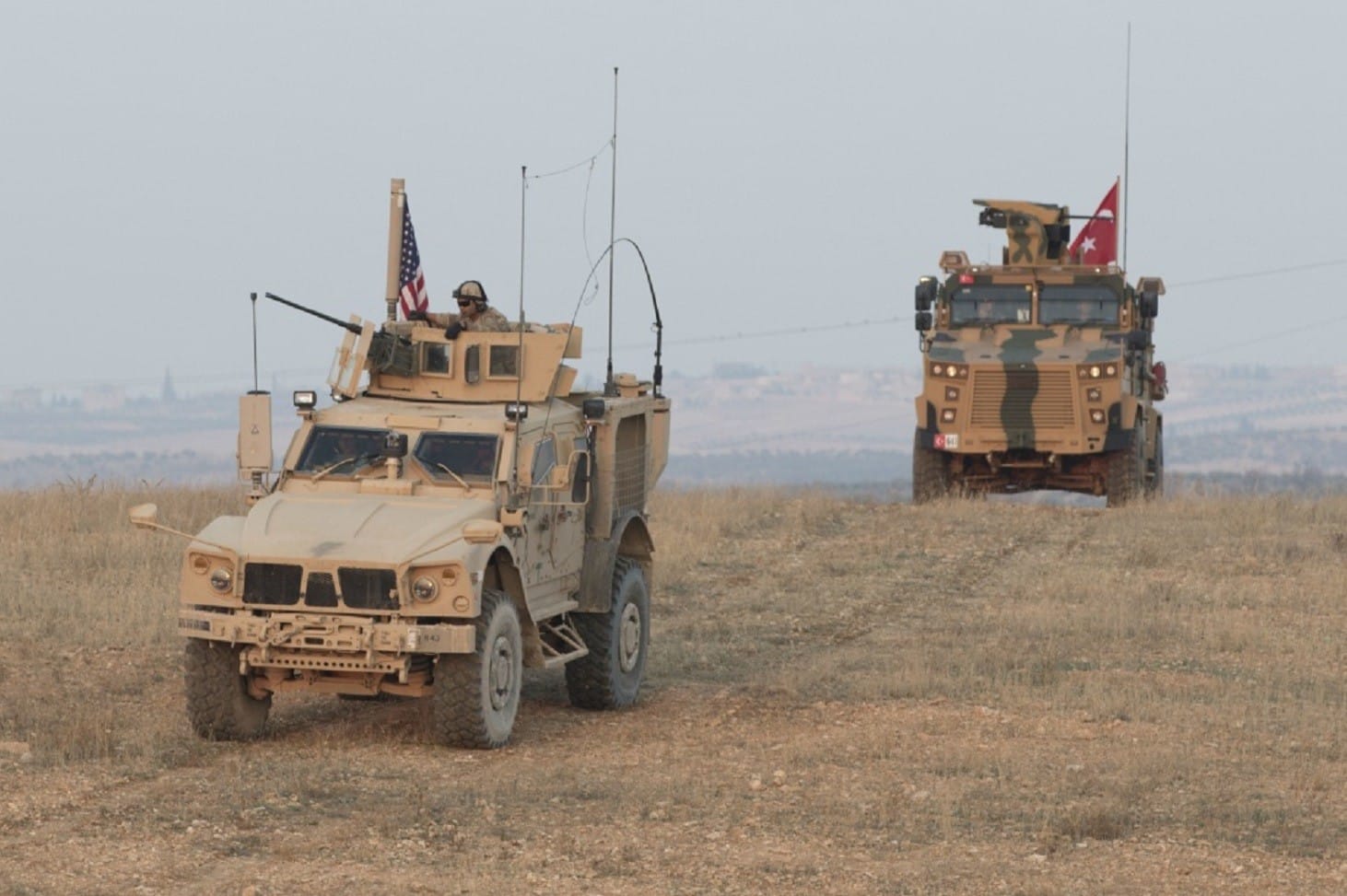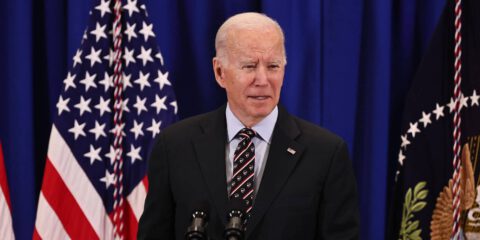הפעלת לחצים צבאיים, דיפלומטיים וכלכליים עשויה להבטיח את המשך קיומם של הכוחות הסוריים הדמוקרטיים והאוטונומיה הכורדית בצפון מזרח סוריה, ולהרתיע את תורכיה ואיראן מהשתלטות על שטחים אלה.
עדיין לא מאוחר מדי – למרות הנסיגה האמריקנית המתוכננת – למנוע את קריסת הכוחות הדמוקרטיים הסוריים (ה-SDF) והאוטונומיה הכורדית בצפון מזרח סוריה (אזור שהכורדים מכנים רוז’אבה) מטעמים מוסריים ואסטרטגיים כאחד. למרות החלטתו של הנשיא טראמפ להסיג את כל הכוחות האמריקנים, ולכאורה – למסןר את האחריות לידי ארדואן – המערכה אינה אבודה. בין היתר, יש לצייד את הכוחות הדמוקרטיים הסוריים ואת שכנתם, הממשלה האזורית הכורדית בצפון עיראק (KRG), ביכולת טובה יותר להגן על עצמם, וללחוץ על ארדואן להימנע ממסע כיבושים (והרס) בשטחים אלה; כך גם ניתן למנוע מצב שבו יזמינו את אסד ואיראן להגן עליהם.
אחת מההשלכות הדרמטיות ביותר של החלטת טראמפ להוציא את כל הכוחות האמריקאים מסוריה – בניגוד לעצתו של שר ההגנה מאטיס, שהתפטר בעקבות כך – עלולה להיות קריסתם של כוחות ה-SDF, המיליציה הכורדית השולטת כיום על חלק ניכר מצפון-מזרח סוריה. תרחיש זה עלול להתממש אם תורכיה תפלוש לשטחים אלה (פעולה שתהיה ככל הנראה כרוכה בלחימה קשה וממושכת, ולכן קטסטרופלית במונחים של סבל, עקירה והגליה), או אם יאלצו הכוחות הכורדים לקבל את מרותו של משטר אסד ושל איראן, או שילוב עגום של שני אלה.
אף כי השתלשלות עניינים זו היא האפשרות הסבירה, היא אינה בלתי נמנעת. כוחות הקואליציה, שחקני מפתח בינלאומיים, וגורמים אזוריים אחרים, יכולים ככל הנראה לסייע לכוחות הדמוקרטיים הסוריים ולהרתיע את ארדואן מחיסול לפחות חלק, אם לא כל אזורי השליטה של האוטונומיה הכורדית בסוריה (שאותו הם מכנים אזור רוז’אבה – “ארץ שקיעת השמש”, בשל היותו האזורהמערביביותר במזרח התיכון המאוכלס בכורדים).
יוזמה כזאת מגובה בנימוקים מוסריים איתנים. ה-SDF הוא הכוח שהפך את הקערה על פיה בלחימה נגד דאע”ש בקובאני, שהציל את היזידים מרצח עם, ושסייע בכיבוש א-ראקה ובהבסת דאע”ש, אותם הישגים שחוגג עכשיו טראמפ (אולי בטרם עת?). בריתו עם ארה”ב ראויה להתייחסות רצינית יותר מאשר לפטור אותה כמערכת יחסים “עסקתית” (transactional) שניתן כעת להזיז הצידה, אמירה שהשמיע איש הממשל האמריקאי ג’יימס ג’פרי, אדם טוב ומוכשר הנדרש כעת ליישר קו עם עמדת הנשיא טראמפ. נטישת שותפים נאמנים אינה מדיניות נבונה – הן מסיבות מוסריות, וגם משיקולים אסטרטגיים. זהו גם לקח לרבים אחרים באשר לאמינותה (או אי-אמינותה) של ארה”ב כבעלת ברית, אל מול האפשרות לפנות לרוסיה או לאיראן.
לחיסול השליטה הכורדית באזור עלולות להיות השלכות מסוכנות כבר בטווח המיידי. אם אכן יוטל על הצבא התורכי, בהנהגתו הניאו-עות’מאנית של ארדואן, לפלוש לכל שטחי האזור הכורדי בסוריה – כפי שקרה באזור עפרין בתחילת 2018 – התוצאות עלולות להיות חמורות ומשמעותיות מאוד, הן במונחים של אובדן חיי אדם, עקירה והגליה, והן בערעור מוחלט של מאזן הכוחות באזור. לחלופין, ייתכן שה-SDF יאלץ להיכנע למרותו של משטר אסד ולאיראן, מה שיקל עליהם מאוד לפתוח מסדרון קרקעי רציף לים התיכון ולגבולות ישראל וירדן.
מסיבות טובות אלה, יש לנקוט צעדים בתקופה הקצרה העומדת לרשותנו כל עוד הנסיגה נמשכת.
ראשית, צריכים צבא ארה”ב והסוכנויות האמריקאיות הרלוונטיות לעשות את כל הניתן כדי להותיר את כוחות ה-SDF כשהם מלוכדים ומצוידים היטב על מנת שיהיה ביכולתם להחזיק מעמד לאחר הנסיגה. ליכולת קרקע-אוויר, יכולת שחסרה מאוד בעפרין – הואיל ויש ביכולתה לשנות את כללי המשחק במקרה של פלישה נרחבת – יש חשיבות מכרעת בהרתעת התקפה תורכית פוטנציאלית (וכפועל יוצא, צמצום או ביטול הצורך של הכורדים לפנות לעזרת אסד ואיראן). לאותם חברי קונגרס המוטרדים מהחלטת הנשיא, אך אינם יכולים לקרוא עליה תיגר, מוטב לפעול במהירות על מנת להציע תמיכה צבאית, פוליטית ומוסרית ל-SDF (ולממשלת ה-KRG שמעבר לגבול, בצפון עיראק, שעשויה אף היא להיגרר לעימות).
את המאמץ הזה יש לגבות, להשלים ואף להניע בעזרת סיוע משמעותי בכסף ובאמצעים אחרים שמקורם במדינות המבינות כי יש לבלום את איראן, ולהניא את הכורדים מחיפוש מחסה תחת כנפיה של טהראן. טראמפ צדק בהיבט זה: הגיע הזמן שאותם גורמים אזוריים השותפים לחשש הקיומי מפני השאיפות האיראניות, יקיימו את אשר הם דורשים, ויטו שכם בעול המימון והחימוש של ה-SDF.
בינתיים יש אולי חשיבות רבה יותר, ובוודאי אפקטיביות מיידית, למאמץ דיפלומטי נרחב בשיטת המקל והגזר שירתיע את ארדואן מיציאה להתקפה כוללת. שחרורו של הכומר ברונסון כבר הראה שתורכיה לא יכולה להתעלם מלחץ אמריקאי. גם הממשל וגם הקונגרס האמריקאי צריכים להבהיר לאנקרה שמערכה קשה ברוז’אבה, כפי שהיא אכן צפויה להיות, הכרוכה בסבל רב של אזרחים, תפגע בטווח הארוך במעמדה של תורכיה בוושינגטון (ומעבר לה). מהלך כזה יטביע ללא ספק את עסקת ה-F-35 שעדיין מושעית, כמו גם תוכניות אחרות של שיתופי פעולה עם תורכיה. הוא עלול להוביל גם לפגיעה בלתי רשמית בפריבילגיות של טורקיה בנאט”ו, ובעקבותיה, גם נקיטת צעדים כלכליים.
אף כי ייתכן שכל אלה לא יצליחו לעצור מדיניות תורכית נחושה, אם המחיר הצבאי, הדיפלומטי והכלכלי של מדיניות כזו ימשיך להאמיר, ההחלטה לפעול עשויה לפחות להידחות לעתיד בלתי ידוע.
במקביל יש לעודד את הכורדים ברוז’אבה ואת הממשלה האזורית הכורדית להימנע מקיום עסקאות עם טהראן, עסקאות העלולות לפגוע באוטונומיה שלהם ואולי גם בעצמאותם לעתיד. בו בזמן, – למרות המסרים הבוקעים מביקור הבכירים התורכיים במוסקבה – עדיין יש סיכוי לגייס את רוסיה לטובת שימור האוטונומיה הכורדית, מהלך שמוסקבה תמכה בו בעבר; ולו בגלל העניין שלה במשאבי האנרגיה שבשליטה כורדית. מנקודת המבט של ישראל, דומיננטיות רוסית עדיפה על פני שליטה איראנית או תורכית.
סדרת הפרסומים “ניירות עמדה” מטעם המכון מתפרסמת הודות לנדיבותה של משפחת גרג רוסהנדלר.
תמונה: U.S. Army photo by Spc. Zoe Garbarino [Public domain], via Wikimedia Commons









 - בניית אתרים
- בניית אתרים